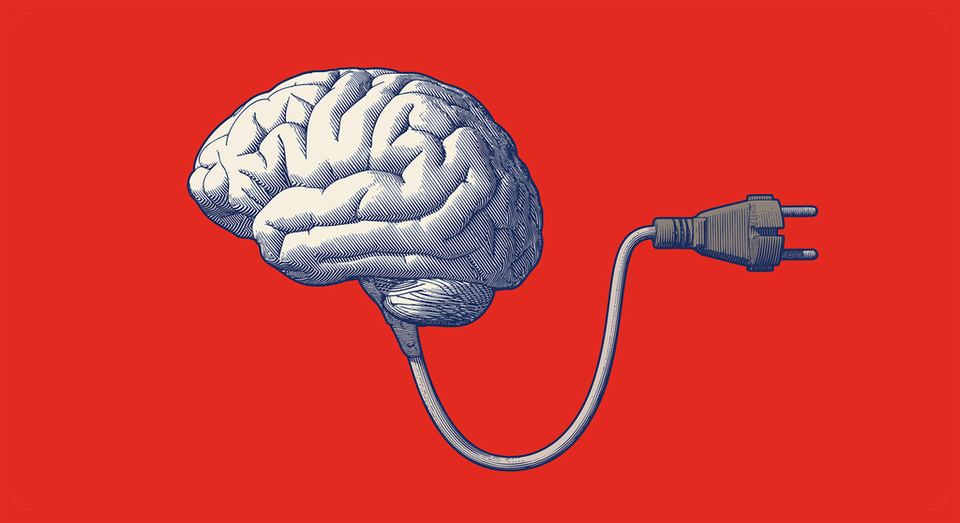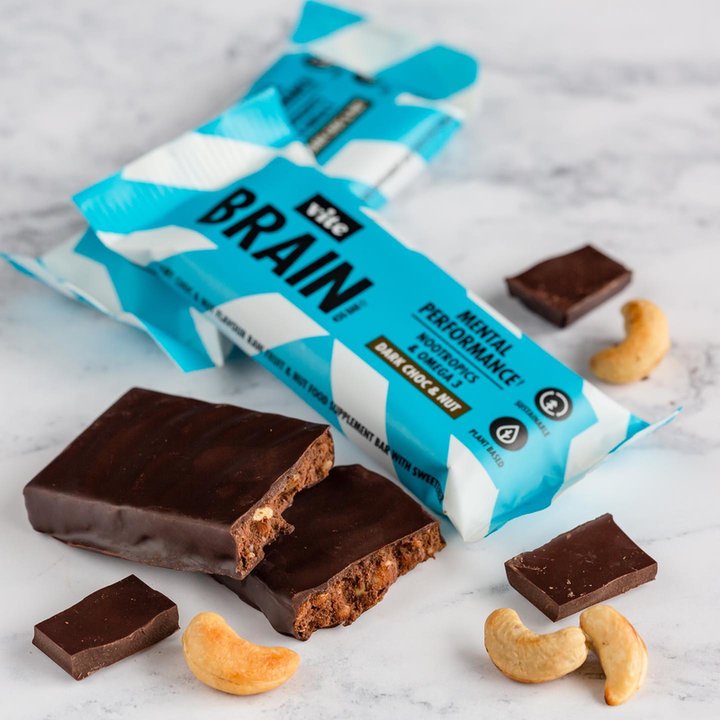
Health & wellness
The smart thinking behind the rise of nootropics
Andy Coyne looks at the likelihood of ingredients promising cognitive enhancement transferring into food products.
W
hen Anglo-Dutch consumer goods giant Unilever announced in April that it had bought the US “holistic wellness and lifestyle” company Onnit, industry-watchers took note.
Because, while Texas-based Onnit offers functional food products including protein-enhanced spreads and snacks, it is best known for its “alpha product”: Alpha Brain – a supplement which, it is suggested, can help to bring forth better memory, focus, and mental processing.
Such products that claim to act as cognitive enhancers are known as nootropics.
Unilever has a portfolio of wellness and supplement brands that include Olly Equilibra, Liquid I.V., and SmartyPants Vitamins. But it is, of course, also a major player in the food industry with brands such as Marmite and Ben & Jerry’s.
Was the Onnit deal a precursor to Unilever using its new asset’s expertise in nootropics to look at R&D around improved cognitive function ingredients in mainstream food products, observers wondered?
After all, claims linked to immunity have leapt from the medicines and vitamins aisle in supermarkets to the packaged-food fixtures in recent times.
Nootropics in the zeitgeist
On announcing the deal, Peter ter Kulve, president of health and well-being at Unilever, described Onnit as a “leading brand in the fast-growing nootropics segment” but did not comment on what the deal might mean for its food products portfolio.
But that did not stop industry-watchers from doing that for him.
Theadora Alexander, co-founder of London-based SMEs network and consultancy Young Foodies and small brands ‘supermarket’ Mighty Small, says: “I wasn't surprised to see the [Unilever] acquisition go through. I think this is a really exciting, zeitgeist space and it will only accelerate.
“In reality, big businesses building brands in-house goes slowly. I expect to see more M&A and investment in this space. Up-and-coming brands are raising capital easily. Nootropics is coming up more and more in conversations.”
Up-and-coming brands are raising capital easily. Nootropics is coming up more and more in conversations.
Susie Fogelson, partner and CMO at New York-based communications firm ThroughCo Communications, agrees.
Fogelson, a consultant to food brands, says: “Unilever’s decision to expand its portfolio into scientifically-based wellness solutions is a bold move. Its focus on wellness has been a strategic goal for the past few years and it says a lot about what they believe their differentiators are.
“As we know, the packaged goods industry has been on the ropes and needs to focus on what’s happening now in food and nutrition but also what is new and next. In order for packaged goods to stay relevant, it needs to be a part of that movement.”
But what is it about nootropics that makes it an interesting area for expansion for a company such as Unilever?
After all, claims that certain foods can improve cognitive functions – particularly executive functions, memory, creativity, or motivation– in healthy individuals, have always been there.
Dark chocolate, coconut oil, nutmeg, and spinach have been touted, while choline in eggs has been linked to brainpower. And, as children, many of us were told we had to eat more fish as it was “brain food”.
A growing health and wellness trend
Hamish Renton, managing director at UK-based international food and drink consultancy HRA Global, says: “The word nootropics is overplayed but we are talking about cognitive enhancement.
“Classically it's to do with either trying to calm things down or getting wired – that 10-espresso feeling.
“The common or garden end is things like nutmeg – but what is taking over is combinations, putting together little cocktails of nootropics and then positioning it for the occasion.
“It's going now into single-use. I don't want to pay for the components I don't want. I'll pay for the ones I do and avoid the pointless nootropics in there.”
But why has nootropics become the subject of such excitement now? Is it because of an increase in awareness of health and wellness linked to the Covid-19 pandemic – the same reason why immunity products have taken off?
Brain-power food is the intersection of this more aggressive approach to self-care and signals one’s desire to harness this power to feel and live better from the core.
Alexandersays: “It is inextricably linked to health and wellness claims, not just Covid-19 but a growing momentum towards wellness and lifestyle over the last 10 years – back to the days of granary bread instead of white bread. Covid-19 has amplified that.”
Fogelson agrees. She says: “Self-care has been catapulted into the collective consciousness with a fervour no one could have predicted.
“People want to take charge of their health with a ferocity that pushes boundaries and pushes them out of their comfort zone. Brain-power food is the intersection of this more aggressive approach to self-care and signals one’s desire to harness this power to feel and live better from the core.
“As well, we are in a mental health crisis.”
Renton has an additional theory. “I think people are bored, stuck at home, spending quite a lot of money on the internet, “ he says. “They have a lot of time and money on their hands and have had a lot of Zoom-induced fog.”
That’s not to say he thinks nootropics are a bad thing. “I'm all for it – things that, like coffee and green tea, light up areas of the brain.”
More screen time, more demand
Mayuresh Bedekar, director of product strategy for bioactives at Ireland-based ingredients firm Glanbia, says: “The market is growing rapidly, with all major brands looking to launch products that aid brain health and cognition
“Nootropics now exists across all major food and drink sectors, whereas previously it was only found in specialised supplements like tablets and capsules for a niche market. Now it is becoming mainstream, with global brands launching products that contain cognitive-boosting ingredients.
“While nutrition for physical energy and stamina has long been in demand, the link between nootropics and brain health is becoming more widely accepted.
“The e-gamer market is seeing strong growth in relation to nootropics, as intense video gameplay demands high levels of concentration and focus. 'Zoom-fatigue' as a result of increased homeworking caused by Covid-19 is also driving demand among working professionals.”
In terms of the ingredients most in-demand in this area, Bedekar says: “Aside from the ever-popular caffeine, there are many other ingredients known for their brain-health benefits that are competing in the nootropics market. These include creatine, choline L-theanine, alpha-GPC, GABA, resveratrol, and botanicals such as bacopa and gingko biloba.”

Vite Brain Bar is one of the early nootropic products in the UK.
Credit: Vite Natruals
And, as she suggests, the first nootropics food products are starting to appear with, for example, UK-based Vite Naturals selling its Vite Brain Bar and US company Impact Snacks highlighting the brain-boosting potential of its Dark Chocolate brownie.
Brands expert Alexander suggests there will be plenty more to come.
“The opportunity brands have is to doorstep the shopper and uphold their expectations,” she says.
Fogelson agrees: “There are lots of conversations around Covid-19 brain fog and many people claiming to have lingering and prolonged brain fog after experiencing Covid-19. This could lead to more companies coming out with nootropic claims, specifically marketing as a cure to this issue.”
Time for nootropics to prove their worth
But do those claims stack up? And will nootropics be a flash in the pan or become as mainstream as added protein?
Alexander says: “This is meant to be scientific. It shouldn't have to be a woolly area. Functional brands need to be able to back their claims up. We are in a world where people live-review your products.
Fogelson suggests the trend will spike and then settle. “The challenge is to generate awareness for nootropics, showcase their value and benefits – no easy task – and to make them accessible for the uninitiated.”
Renton believes that nootropics have a future in the food and beverage sector. “Give it five years and you will see more nootropics in coffees and teas,” he says.
However, he cautions that “when you put it into food you can mix the picture and slow their absorption”.
This is meant to be scientific. It shouldn't have to be a woolly area. Functional brands need to be able to back their claims up.
And he argues the claims made by some nootropics businesses – admittedly mostly pills and supplements manufacturers at this stage – can be hard to prove, describing it as “adding a sniff of bat poo to make the punters shell out another couple of quid”.
Renton adds: “You can't get away from the fact that they [nootropics] are fairly edgy because they are trying to change your brain in some way.
“And there is a big split between natural components versus synthetic compounds. At least with the natural products, you have hundreds of years of use in certain places.
“But the more interesting story is the racier, game-changing stuff. The effect of choline on your mind is pretty mild but then you stack it and it has a game-changing impact.”
Alexander thinks the trend has legs. “In a world where mindfulness and mental health are being talked about, there is no doubt food will start dialling up these benefits,” she says.
“It will be interesting to see how the category builds amongst consumers. I think it will start online and not in bricks-and-mortar.
“How this manifests itself in consumers' lives is up for debate but the principle is something I would invest in.”